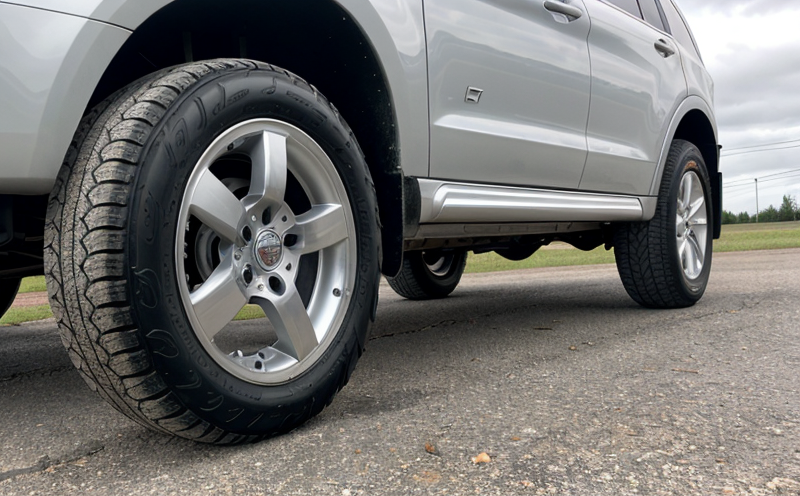EN 13262 Fracture Toughness Testing of Wheels
The EN 13262 standard is a crucial document for the railway and transportation sector, particularly when ensuring the safety and integrity of wheels used in various transport applications. This standard specifies the method for determining the fracture toughness (KIC) using the Compact Specimen B (CSB) or the Split-Hole Compact Specimen B (SHCSB). The test is conducted to ensure that wheel materials meet critical strength requirements under dynamic loading conditions, which are essential in preventing failures during operation.
The process involves subjecting a wheel specimen to controlled stress and observing crack growth until failure. This testing method is particularly important because it helps identify potential flaws or weaknesses within the material before they lead to catastrophic failures on the railway. By adhering to this standard, manufacturers can ensure that their products meet stringent quality requirements set by international bodies.
The test procedure typically begins with selecting an appropriate specimen size and shape based on the wheel type being tested (CSB or SHCSB). Specimen preparation is critical; it requires precise machining techniques to maintain dimensional accuracy within specified tolerances. Once prepared, specimens are subjected to controlled loading until they reach the point of fracture toughness measurement.
The data obtained from these tests play a vital role in product development and quality control processes by providing insights into material performance under stress conditions similar to those experienced during real-world operations. This information is invaluable for improving design iterations, enhancing manufacturing methods, and ensuring compliance with relevant safety regulations.
| Application Area | Description |
|---|---|
| Railway Vehicle Manufacturing | Ensuring safety and reliability of wheels used in passenger and freight transport. |
| Transport Equipment Development | Supporting the design phase by providing detailed fracture toughness data for new materials or modified designs. |
| Regulatory Compliance | Meeting international standards to ensure products are approved for use in different regions and countries. |
- Railway vehicle manufacturers must comply with EN 13262 to guarantee the safety of passengers and crew.
- The testing results help transportation equipment developers optimize their designs for better performance and durability.
- Regulators rely on these tests to approve new products, ensuring they meet global safety standards.
Industry Applications
The EN 13262 fracture toughness testing of wheels finds extensive application across the railway and transportation sectors. It is particularly important for ensuring the safety and reliability of components that interact with high-speed trains, subways, and other forms of public transport. Here are some key areas where this testing plays a critical role:
- Railway Vehicle Manufacturing: Ensuring the structural integrity of wheels used in passenger and freight transport.
- Transport Equipment Development: Supporting the design phase by providing detailed fracture toughness data for new materials or modified designs.
- Regulatory Compliance: Meeting international standards to ensure products are approved for use in different regions and countries.
Eurolab Advantages
At Eurolab, we pride ourselves on delivering comprehensive testing solutions tailored specifically to meet the stringent requirements outlined by EN 13262. Our state-of-the-art facilities and experienced team ensure that every aspect of your project receives the attention it deserves.
- Expertise: Highly skilled personnel with extensive experience in performing EN 13262 tests.
- Accreditation: Fully accredited testing laboratory recognized by leading international standards bodies.
- Technology: Advanced instrumentation and equipment to provide accurate and reliable results.
Quality and Reliability Assurance
At Eurolab, we take quality assurance very seriously. Our comprehensive approach ensures that all aspects of the EN 13262 fracture toughness testing process are meticulously executed to deliver accurate and reliable results every time.
- Specimen Preparation: Precise machining techniques ensure specimens meet dimensional accuracy within specified tolerances.
- Data Collection: Advanced instrumentation provides detailed measurements throughout the testing process.
- Reporting: Detailed reports are provided, including all relevant data points and interpretations for easy review.





